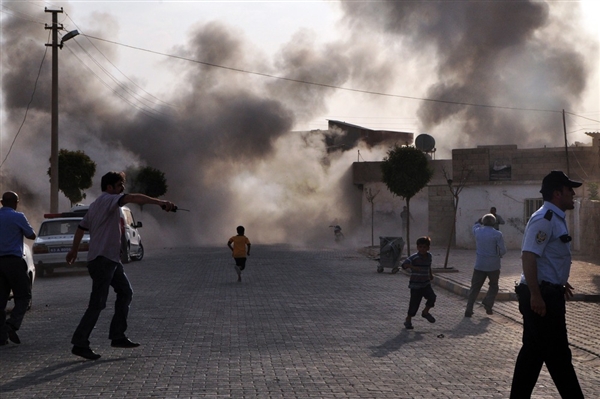
From Ross Wilson, New Atlanticist: Just as Ankara took the June 22 Syrian downing of a Turkish F-4 fighter jet to Brussels as a way to galvanize NATO solidarity at a time of rising turmoil on its southern frontier, so it did immediately after the October 3 exchange with Syria. Nothing in the intervening weeks since the F-4 incident lessened Turkey’s increasing sense that it is exposed and alone in the face of obviously rising instability along its southern border–alone specifically in the sense of what it regards as silence on the part of its allies. Turkish Foreign Minister Ahmet Davutoğlu was reportedly flabbergasted that his tough line on Syria during the opening of the UN General Assembly in late September got so little resonance or response. The Akçakale salvos add urgency to his efforts and to the need to galvanize a stronger international response that will better contain, if not calm, the growing instability in Syria.
Meeting late in the night on October 3, North Atlantic Council ambassadors heard a report from the Turks and issued a strong statement of support. . . .
In the days ahead, it will be important for NATO leaders–national leaders, as well as Secretary General Anders Fogh Rasmussen and member state ambassadors in Brussels–to continue to speak out strongly in support of Turkey and of Alliance interests in its security. They should make clear that Syrian action across the border will be regarded as an Alliance issue. This will help to deter further incidents or worse. While the invocation of Article 5 seems quite premature at this point, such political support for Turkey now will be important for Alliance solidarity–and for keeping Turkey firmly in and with the West. It will also be crucial for containing the consequences of Syria’s implosion and ensuring the Alliance has capabilities–i.e., in Turkey–for dealing with greater Syria-related dangers to come.
Ross Wilson served as America’s ambassador in Turkey from 2005-2008. He is currently Director of the Dinu Patriciu Eurasia Center at the Atlantic Council. (photo: Rauf Maltas/ANA)
Image: 121003-turkey-syria-740a.photoblog600.jpg
